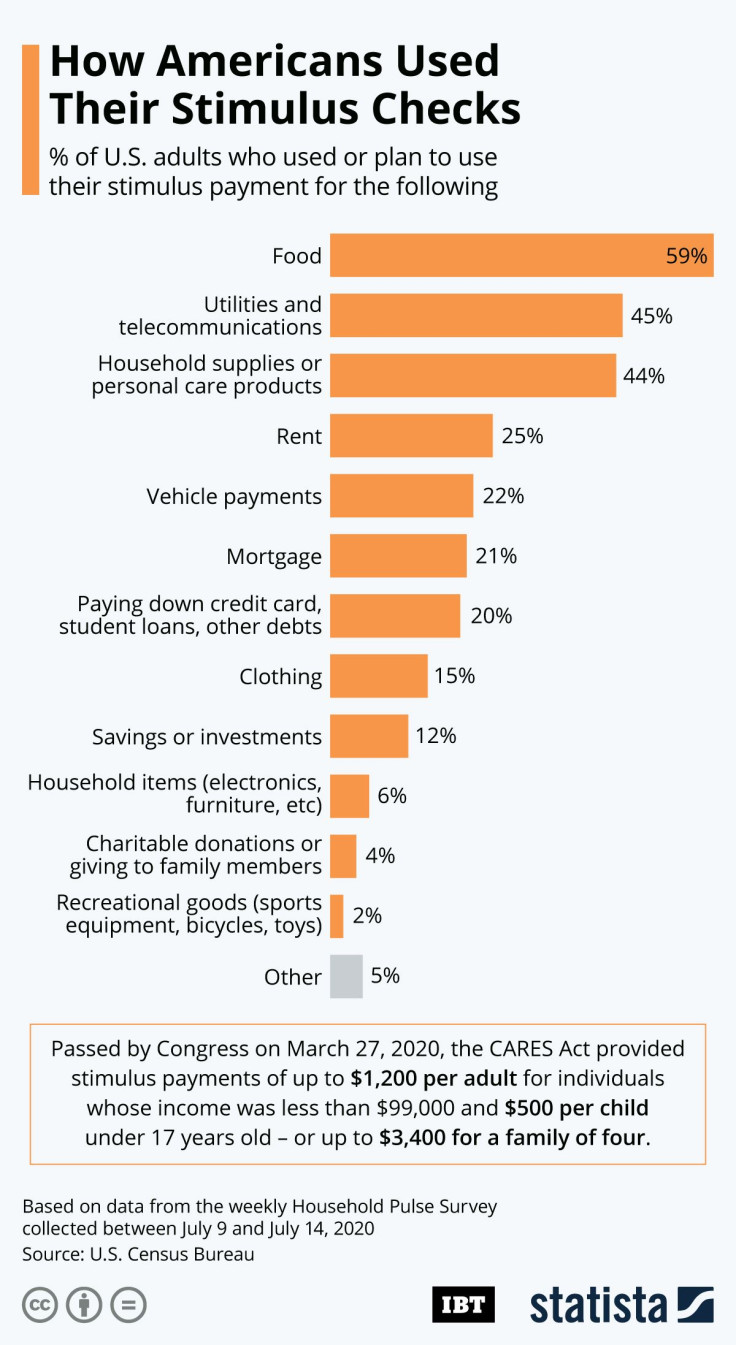Coronavirus Stimulus Checks Mistakenly Sent To Thousands Of Foreign Workers Overseas

KEY POINTS
- The IRS mistakenly sent stimulus checks amounting to an estimated $40 million to foreign workers
- Federal government demands non-U.S. residents who received stimulus checks in error return them
- Blunder follows revelation the IRS sent stimulus checks to 1.1 million dead Americans
The attempt to succor Americans from the economic pain inflicted by the COVID-19 pandemic saw the IRS mistakenly mail $1,200 stimulus checks to thousands of foreign workers who entered the U.S. on temporary work visas.
The blunder might have cost the federal government more than $40 million, according to one estimate by NPR. No exact figures have been released by the IRS as to the total number of wrongly mailed checks it sent out to foreigners.
The latest IRS flap follows the recent revelation that over $1.4 billion was sent by mistake to 1.1 million dead Americans in economic impact payments (EIPs) under the CARES Act signed into law March 27.
The most recent mixup comes despite the fact that only U.S. citizens and U.S. resident aliens are ineligible to receive EIPs. Resident aliens can qualify for an EIP if they possess a green card and have resided in the U.S. for a certain period of time.
One tax firm confirmed individual clients from 129 countries mistakenly received the EIPs or stimulus checks, including Argentina, Brazil, Canada, China, Colombia, Germany, Ghana, India, Japan, Mongolia, Nepal, Nigeria, Pakistan, Peru, Russia, South Korea, the Philippines, Vietnam and Zimbabwe.
Many of these foreigners are college students who travel to the U.S. for temporary and seasonal low-wage jobs in many industries. The U.S. issues work visas to hundred of thousands of foreign students every year. Government records show many of these students come from Eastern Europe and South and Central America,
Tax experts believe the mistake occurred because many foreign workers, either unintentionally or intentionally, filed incorrect tax returns that made them appear to be U.S. residents.
The U.S. government admits some stimulus checks were wrongly sent to foreign workers. The Treasury Department is "exploring possible options" to prevent this mistake from occurring again. The IRS says non-U.S. residents who received stimulus money in error should return it.
One tax firm said some of its foreigner clients who did get the stimulus checks have amended their tex returns. These foreigners worry their receiving the checks might jeopardize their visas, green card applications or ability to return to the U.S.
© Copyright IBTimes 2025. All rights reserved.





















